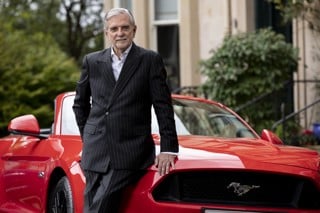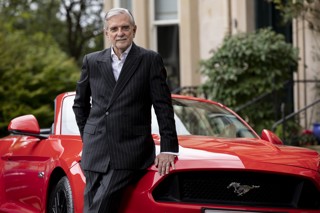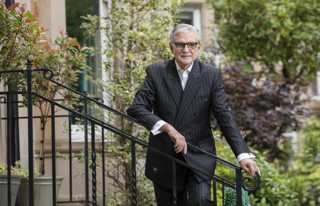JB: In 2010 you wanted to see operating profit from aftersales above 60% when it was at 57% Last year it was at 66%. So, how’s that been done?
BG: It’s the bedrock of our business; our customers like us, we do a good job It’s on my website that if anybody’s unhappy they can write to me, email me and I’ll get back to them within 24 hours.
We have aftersales quality as part of our DNA. And we work hard at it. We get it wrong as often as we get it right. But I think we get it more right than most and therefore customers like what they see.
JB: So are there common threads where you fall down and see repetition of failures?
BG: Usually when a customer gets to me they don’t want to tell me about a complaint, they want to kill me because part of the company has misinformed or let them down.
It costs you so much to win a new customer, so, our philosophy is knock yourself out to look after the existing ones. And if you have to spend more by admitting we got it wrong, we just have to do it.
JB: You set the benchmark at 60. It’s in the 60s. Are you aiming for 70?
BG: I’d like it higher than it is now provided it’s not at the expense of my vehicle sales performance.
JB: How do you foster the strength in people so they maintain the values you have, down through management to the people at the bottom of the ladder?
BG: I was a door-to-door salesman for three years and we were taught that at every door something was sold. Either we sold a magazine subscription or the customer sold us an excuse.
You understand the real priority of what makes people tick. I know with my flat management structure, I can get to the areas that aren’t working in a nano-second.
My antenna is always up so that I can’t sense when things aren’t right. And I have a group of senior managers who I trust implicitly.
JB: Your growth will be restricted by the good people you cannot add to your business?
BG: We’re restricted by the quality of product we get from manufacturer. And it will be influenced, plus or minus, by the quality of people working with us.
The legacy of apartheid
Brian Gilda is a director of Amnesty International and he counts Desmond Tutu a “best pal”.
The connection was born out of experiences in South Africa where he worked as a door-to-door salesman.
“I was in Cape Town for probably three or four years after Nelson Mandela was incarcerated. Apartheid was a shocking system. The only two things I took out of South Africa were my driving licence: which said ‘Brian Gilda; race: white”, and I thought no one is going to give me a document that tells me that ever again; and the other was tuberculosis which nearly killed me.
“So South Africa was a great adventure and I’ve been an admirer of Desmond Tutu for a long time. We talk about important issues. The whole truth and reconciliation stuff he was part of is fantastic.”
Gilda was also invited to be a mercenary. “In a bar, in Cape town. This guy came to talk to me and said: ‘Do you want to make some real money?’ So we said tell us what real money is. He said you get £400 a month.
“I was making more money than that and I didn’t have to kill anybody.”





















Nick - 18/04/2015 08:49
After buying a ford transit van from from peoples in Edinburgh I had problems with the driver side door after a 6 week wait I dropped it of to the Edinburgh branch on the monday morning & was told it would take about 3 days . On the Wednesday I called the Edinburgh branch & was told it was being repaired in Falkirk , I then called Falkirk who then told me they had just started work on it that morning & it would be the end of the week I called on Friday & the Falkirk branch said the van was ready but they wouldn't drop it of to edinburgh & after I complained I was given the managers name in Edinburgh (mark Tully) who then proceeded to blame Falkirk & there was nothing he could do so I had to travel to Falkirk from Edinburgh my self As a small business working from the back of my van I can not do with out my van for a week I'm very disappointed in the lack of professionalism & the lack of after care . When I originally was looking at transits at peoples they pulled out all the stops even shipping in a van of the colour of my choice but now that I've payed the best part of £20,000 they're not interested I would not recommend these dealerships to anyone